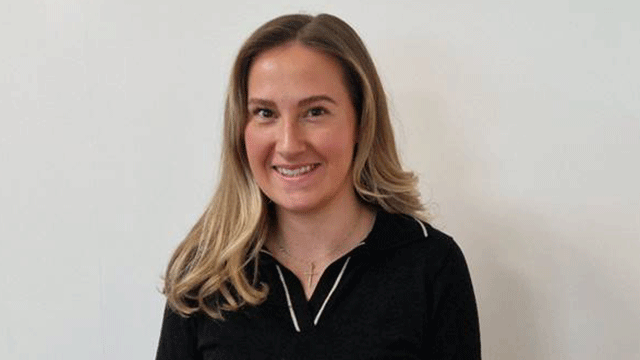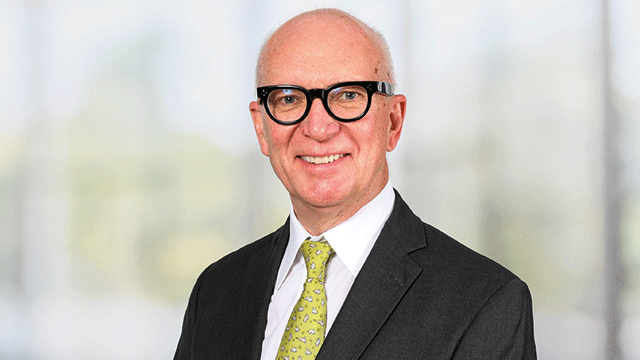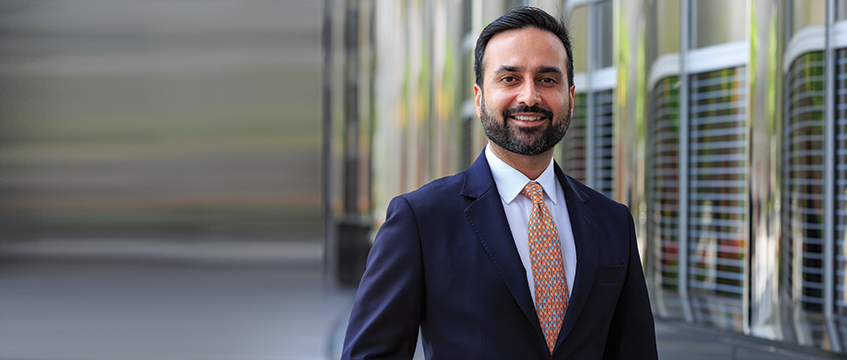Selecting the UK’s regions for investment
Dubai-based private investor Select Group has cemented its position as one of the largest property developers in its domestic market.
Its portfolio comprises 20m sq ft across its properties, with a combined GDV of more than AED17bn (£3.4bn).Included in its pipeline is the remainder of its flagship three-tower, waterfront, Marina Gate residential development in Dubai, which has a gross development value of AED4bn; and a waterfront land bank for a community development of up to 3.4 sq km (840-acres) in Business Bay.
From an investment point of view, the firm’s strategy outside of the UAE is not as well known. But this could change in the years to come, now that Select is quietly reviewing “multiple” potential purchases in the UK.
Dubai-based private investor Select Group has cemented its position as one of the largest property developers in its domestic market.
Its portfolio comprises 20m sq ft across its properties, with a combined GDV of more than AED17bn (£3.4bn).Included in its pipeline is the remainder of its flagship three-tower, waterfront, Marina Gate residential development in Dubai, which has a gross development value of AED4bn; and a waterfront land bank for a community development of up to 3.4 sq km (840-acres) in Business Bay.
From an investment point of view, the firm’s strategy outside of the UAE is not as well known. But this could change in the years to come, now that Select is quietly reviewing “multiple” potential purchases in the UK.
High-quality assets
Ali Hossain, director of strategic investments at Select, says: “Our UK and European strategy has been to acquire a portfolio of high-quality assets in established markets that are not strongly correlated with our home market of the UAE.”
Since it was founded in 2002, Select Group – not to be confused with Select Property Group, which Hossain clarifies is under a different ownership structure – primarily develops and sells off-plan residential real estate, mainly in Dubai.
But to offset the associated development risks and diversify its portfolio, it has also turned its attention to mid-market hospitality ventures across city centres in the UK and Europe, having identified these as part of a strong, income-generative asset class.
The firm, which is targeting a total of 10 hotels within the next five years, still has appetite for transactions in the UK despite its current political and economic challenges, according to Hossain.
So far, Select’s portfolio consists of around £500m assets under management, with the UK business amounting to around a quarter (£125m) of this.
Generally, it aims for deal values of around £15m to £20m. The group’s six UK assets comprise the landmark Echo Building redevelopment in Liverpool; its Ibis Budget Sheffield City hotel development; and four existing assets – Velocity Tower in Sheffield, Birmingham’s Radisson Blu hotel, Ballochmyle Estate in Ayrshire, and Nottingham One.
Conservative approach
Hossain sees this “growing steadily over time” alongside additions to its native Dubai market and in Europe more generally, from opportunistic, ground-up developments to core and core-plus opportunities. Its hospitality division includes a 344-bedroom niu Air hotel in Frankfurt, acquired last year, as well as a 328-bedroom InterContinental Hotel in Dubai and a 104-bedroom serviced apartment offer at Marina Gate, currently under construction.
Nonetheless, it continues to adopt a somewhat conservative approach to acquisitions. This year it has set aside around £50m to £75m for investments, compared with deploying around £100m last year.
“We are patient capital, so this may of course vary,” says Hossain. “It could be much smaller if we don’t get the opportunities we want, or larger if we fund the right transaction at the right metrics.”
On the whole, the UK’s hospitality market remains a key focus for the firm, notwithstanding the ongoing political and economic uncertainty.
“While there are industry headwinds that could impact hotel profitability, such as a potential increase in labour costs and increased supply in certain key markets that will need to be absorbed or else might place a ceiling on rate growth, we are still actively looking at opportunities in the UK,” says Hossain.
“In fact, earlier this year [we] were in close contention to acquire a development site, subject to planning, in a supply constrained market. Our view is that both domestic and overseas visitors will increasingly travel for work and pleasure to cities outside of London.”
Checking into the regions
For Select, the prospect of increasing an asset’s blended yield profile through additional commercial, retail and leisure aspects is particularly important.
This stance is reflected in its October 2018 acquisition of Liverpool’s Echo Building, which will be anchored by a hotel and retained after completion in 2020. The 300,000 sq ft, mixed-use scheme will be funded with equity until completion, after which it will be refinanced.
Select was drawn to invest the UK’s regional markets due to the lower capital values and higher yields compared with those traditionally offered in London. On a risk-adjusted basis, the long-term growth potential of these key cities will also lead to higher income growth and increased liquidity for institutional investors.“These are large university cities,” adds Hossain.
“There is a trend for the younger generations to not just want to go to London, or if they do, they go to London but come back and stay, because there is a lot on offer in these cities.”
Newcastle, Leeds and Manchester are among the cities that are being considered, as they “have a good story, both from the supply side and where we feel comfortable taking a 10-year view”.
Hotter markets
That is not to say that expansion to London is off the cards. Like many overseas investors in the hospitality sector, Select “definitely wants to be” in the capital, ideally with larger properties – but as aspiring entrants often find, the costs of getting in are still too high.
“One of the reasons we have not yet [entered] the London market is that even when looking at development sites, we found the development margin was not sufficient to take the development risk,” says Hossain.
“We want to generate [an] additional yield upside and maybe a capital gain when we sell it on.”
Ireland, too, was highlighted as a “reasonably hot market” that the firm is looking at expanding to. One of the schemes on Hossain’s desk at the moment is a serviced apartment site on the outskirts of Dublin.
“We don’t have anything there, so it is a question of where the opportunity might be,” he says.
Hospitality is not the only sector that the firm has its eye on, either. It also seeks to generate double-digit returns in the short- to medium-term from residential projects in the UK and Dubai, particularly in the private rented sector.
“In the recent past, we were unable to find the right opportunity for us, but the present thesis is that the coming 12 to 24 months might present a good entry for a longer-term position,” says Hossain.
Defying the negative cycle
Back in Select’s native Dubai, the developer has so far managed to withstand the prolonged slump in its real estate market, which many analysts predict will continue for at least another year.
In a market burdened with oversupply, Hossain points out that all of the units at its first building in the flagship Marina Gate development, which completed last year, have been sold. Meanwhile the second building, which is set to be handed over on 1 June, has sold more than 90% of its units.
As for the broader outlook, Hossain reckons the gulf between supply and demand in the market will eventually narrow on the back of the investment proposition for US and European institutional investors, bolstered by steps taken by the UAE government to redress the balance.
“The UAE as a whole has been investing heavily in the infrastructure required to support its growth ambitions,” he says. As an example, he points to a rising proportion of mid-market hotel supply that is opening in the emirate, to counterbalance the plethora of luxury, five-star hotels in the region.
“With that increase in services and tourism, you will get more people who will be rooted here,” says Hossain.
“[The government is], in my opinion, wisely investing so as to be able to expand the number of visitors and residents that can be catered to, not just from these well-established markets, but also from new markets and segments.
“[With Dubai] also located at the crossroads to global growth markets of Africa, South and Central Asia and the wider Middle East, I feel that Dubai and the UAE will increase in relevance to both US and European institutional investors in the years to come.”
Select Group’s portfolio:
20m sq ft international portfolio
10,300 homes
£3.4bn combined GDV: (AED17bn)
£500m total AUM
£125m AUM in the UK
6 UK assets
Partnerships include: InterContinental; Radisson Blue; Jumeirah Group; Novum Hospitality
Locations: Dubai, UK, Germany, Croatia
To send feedback, e-mail pui-guan.man@egi.co.uk or tweet @PuiGuanM or @estatesgazette











